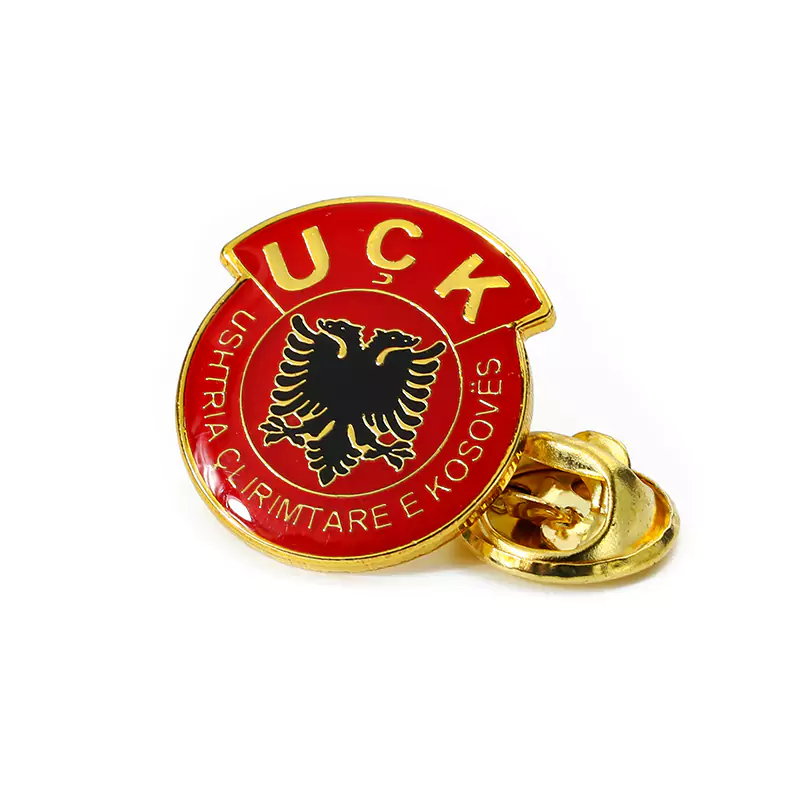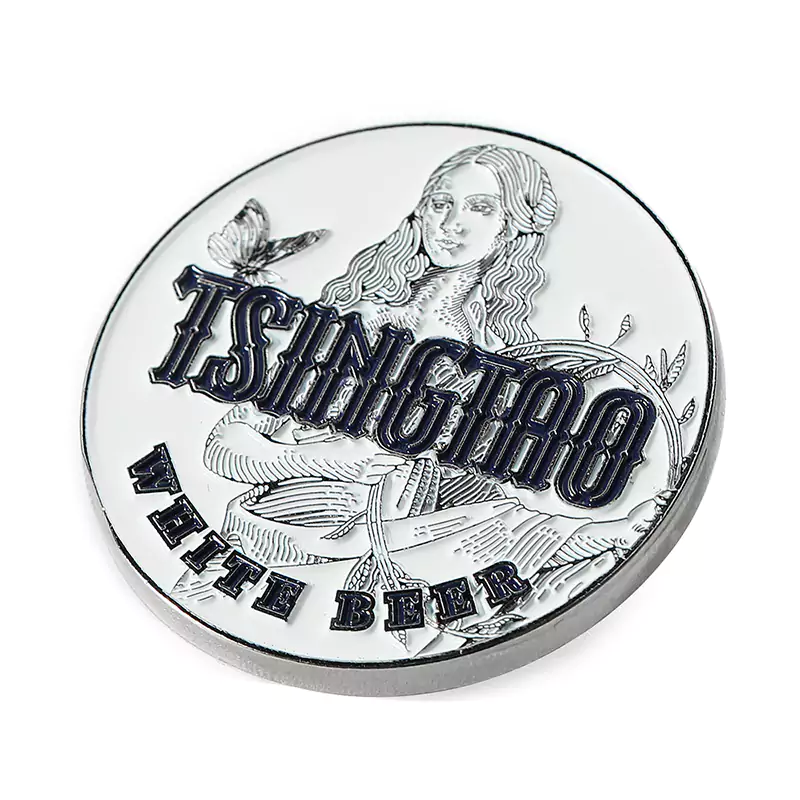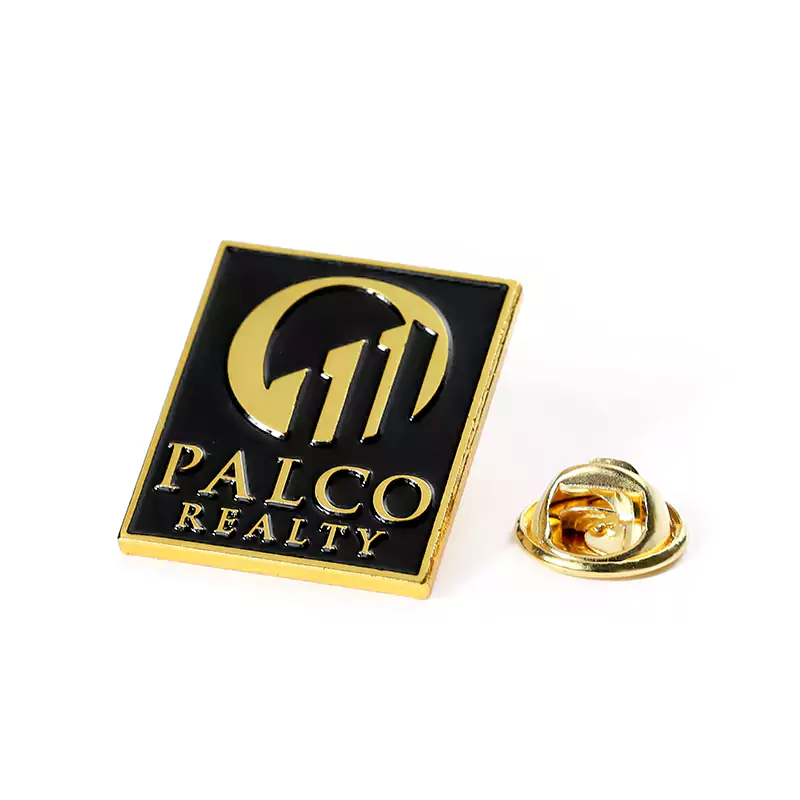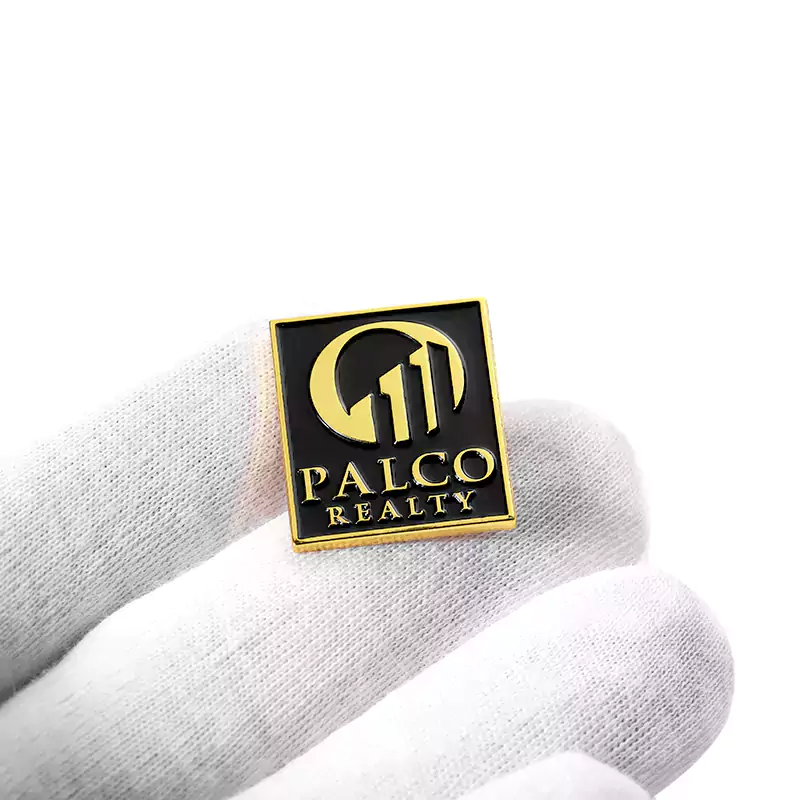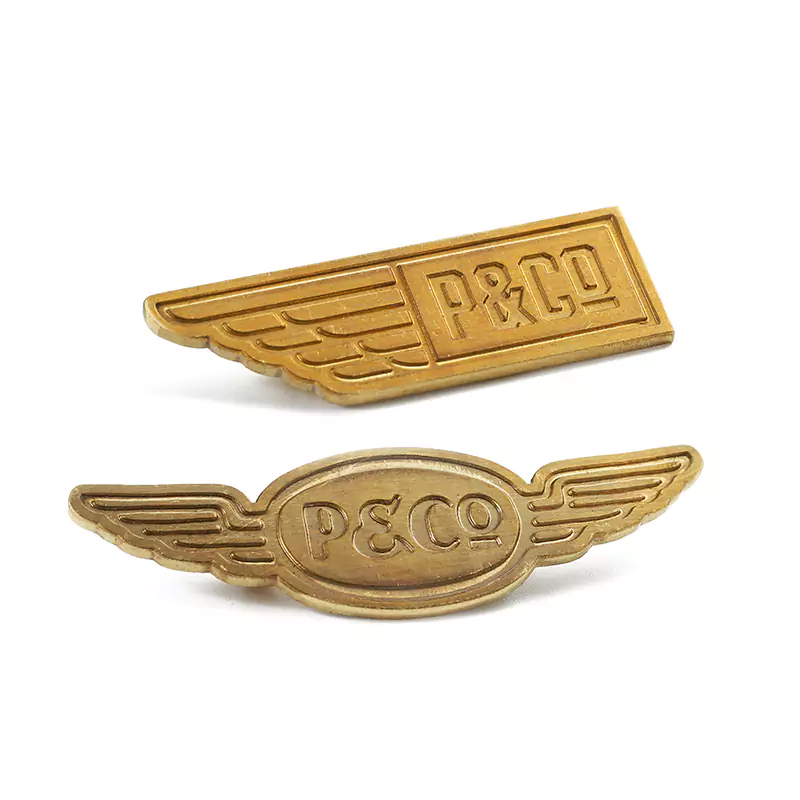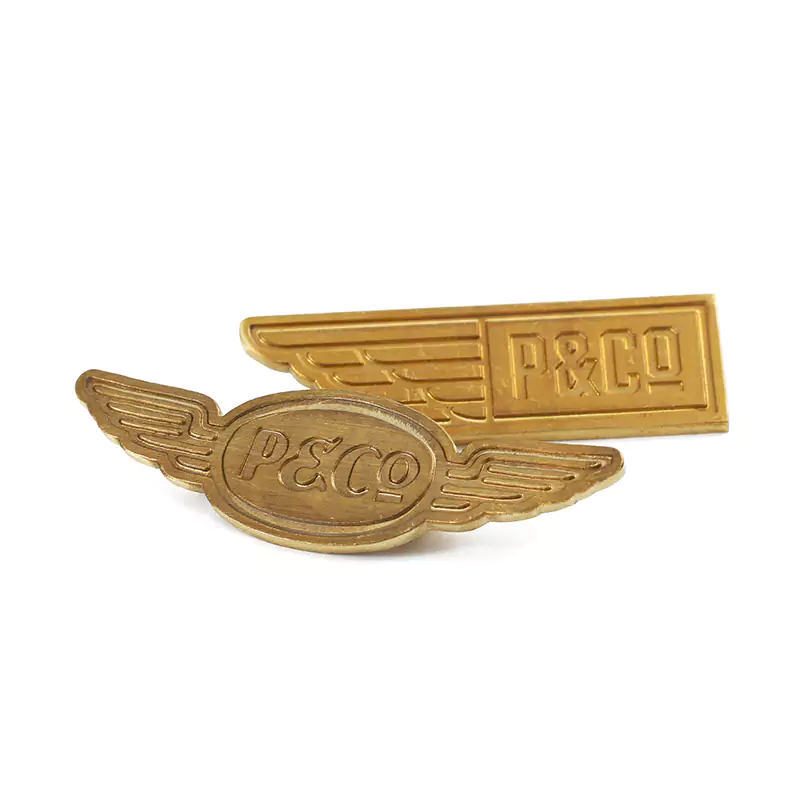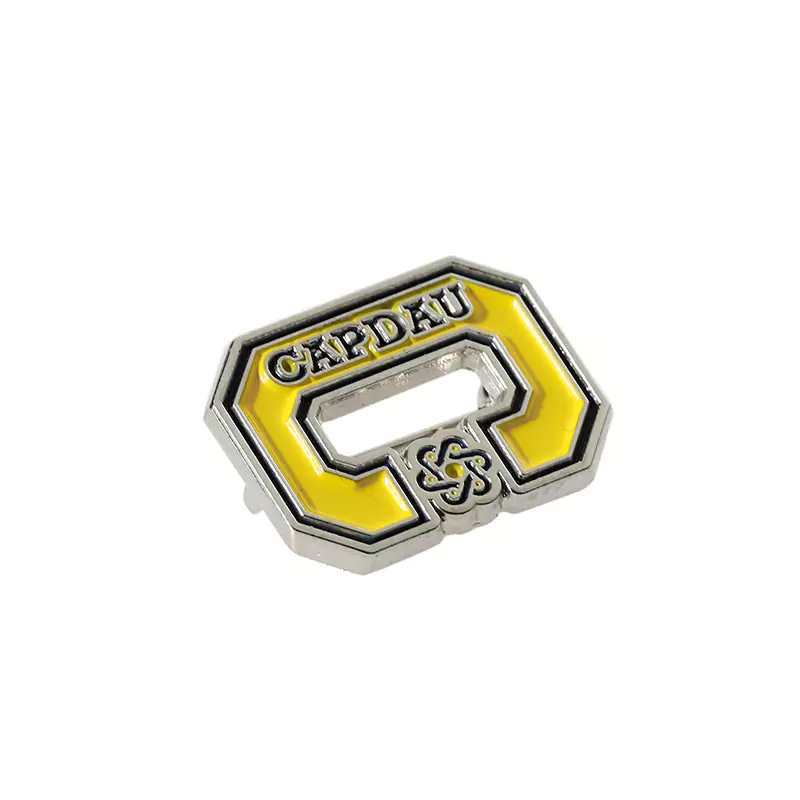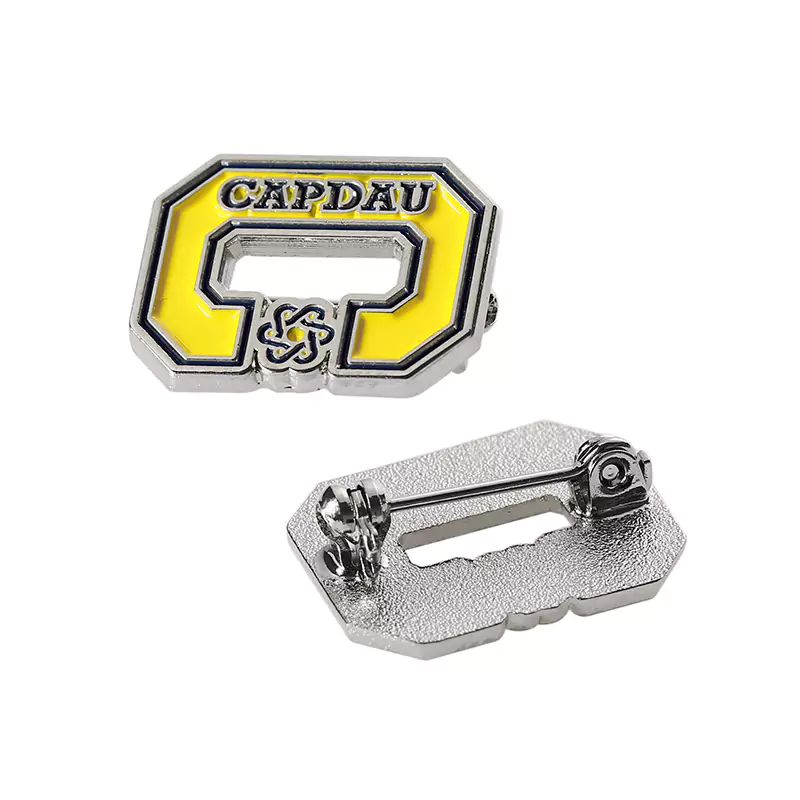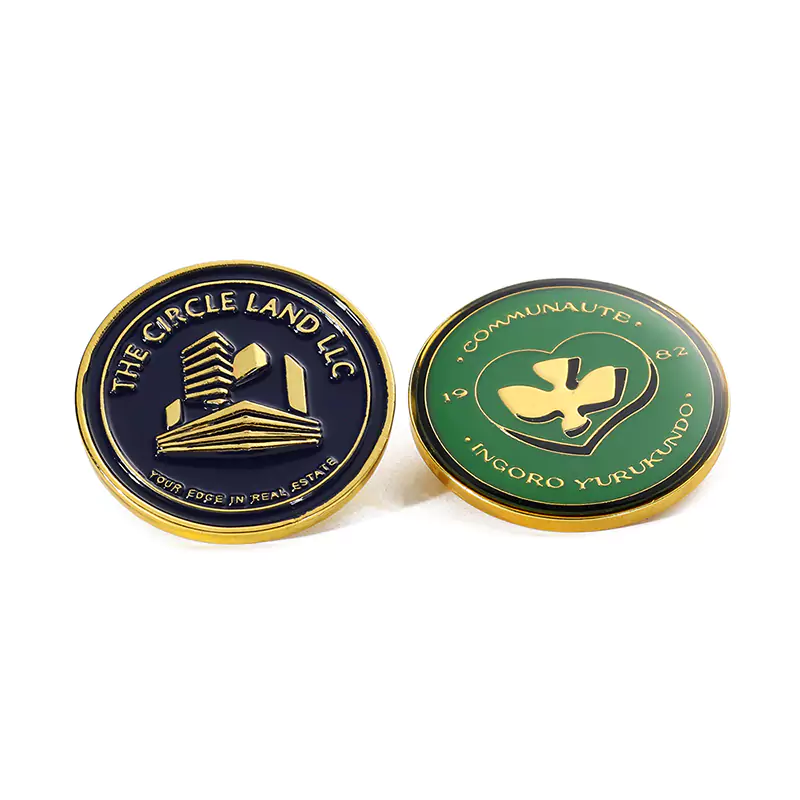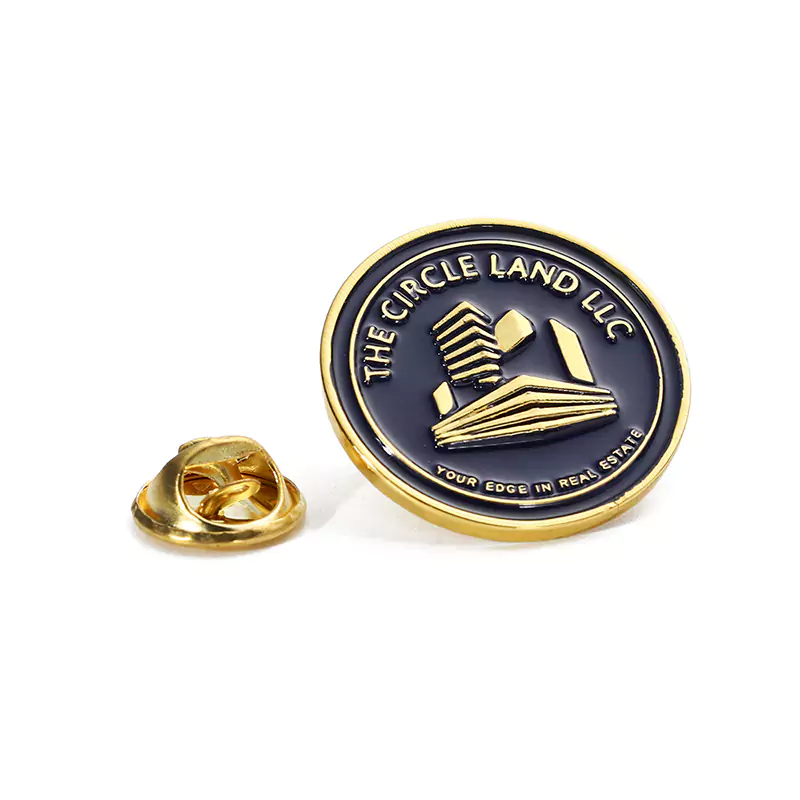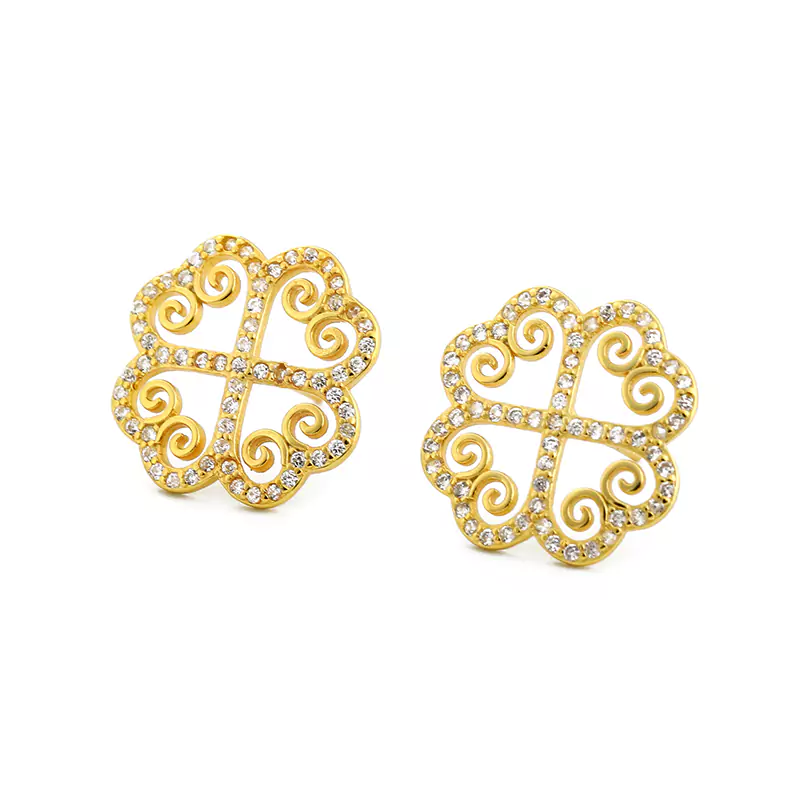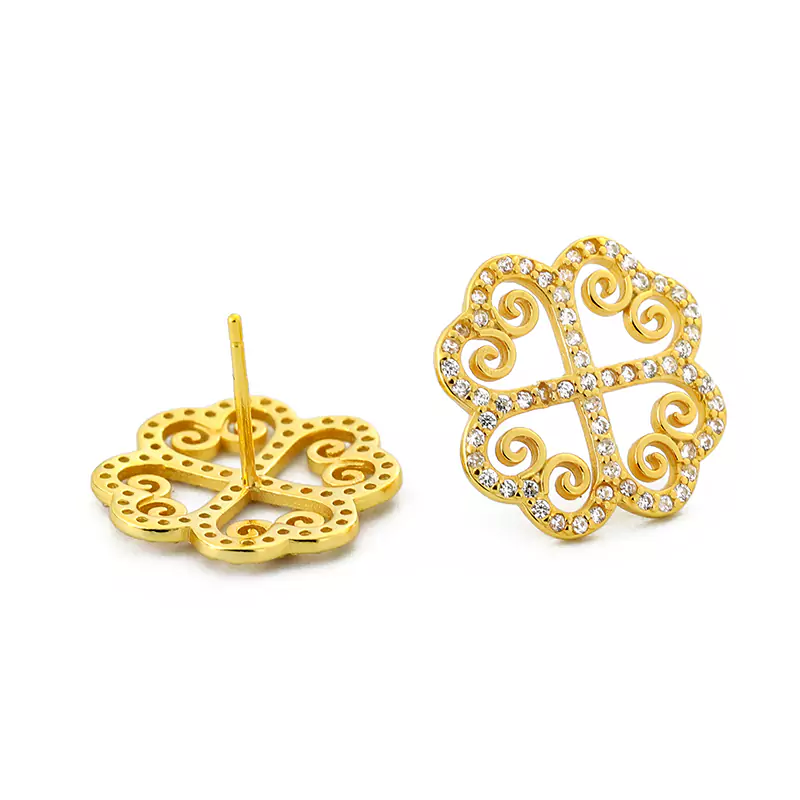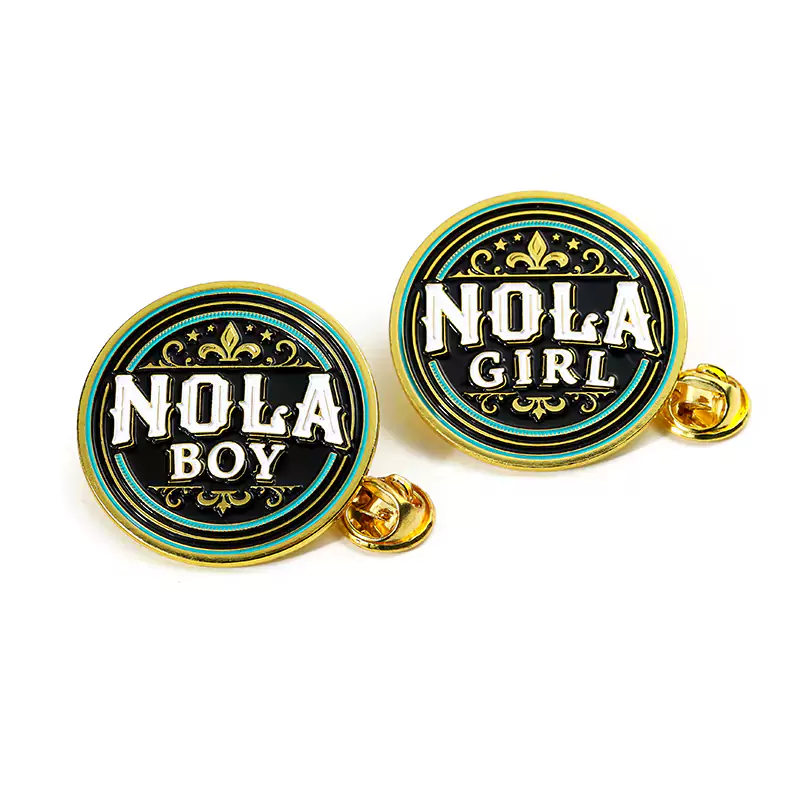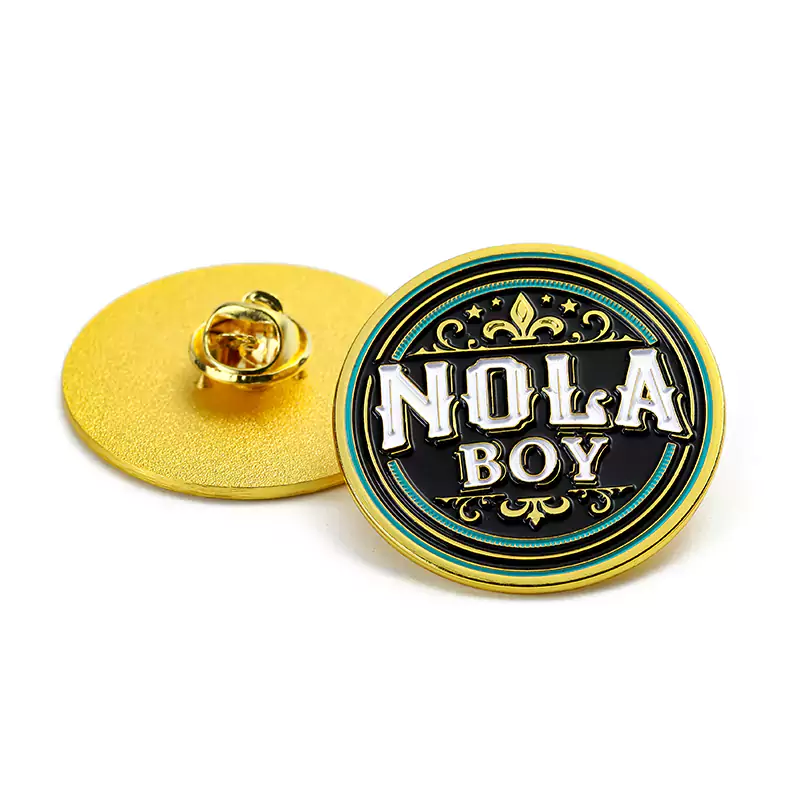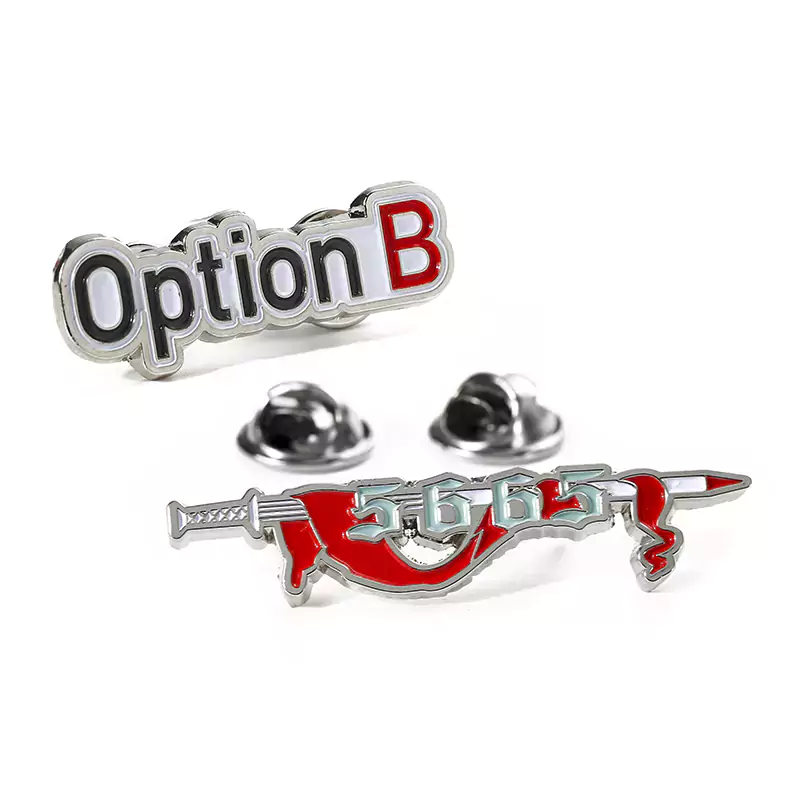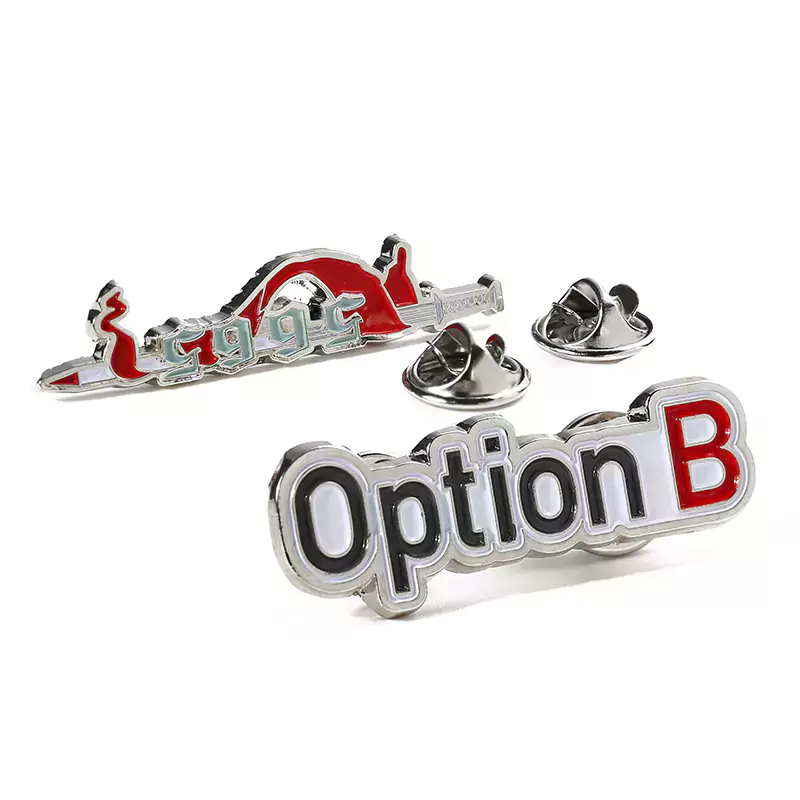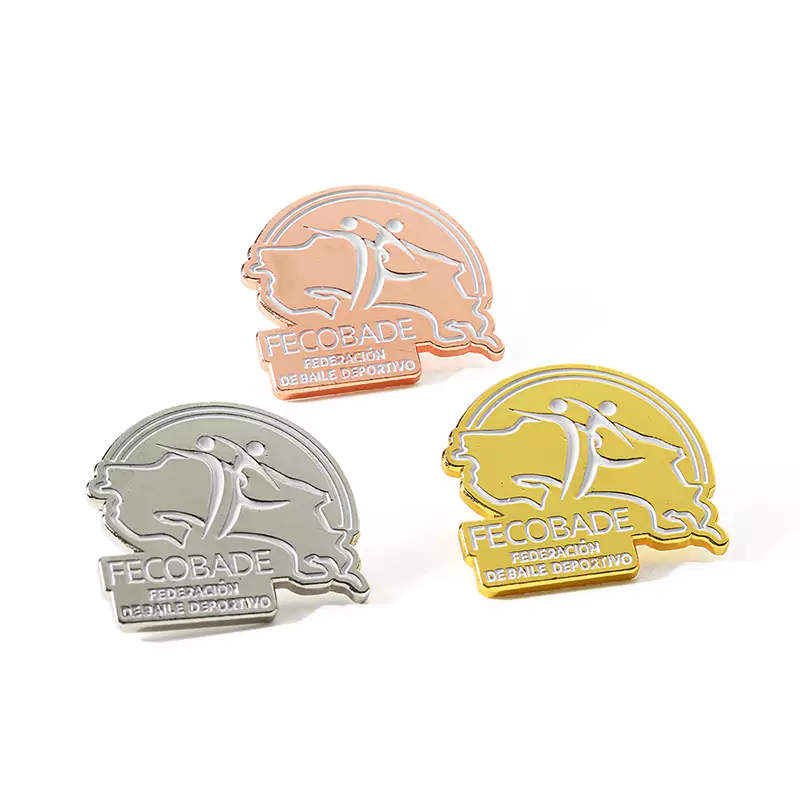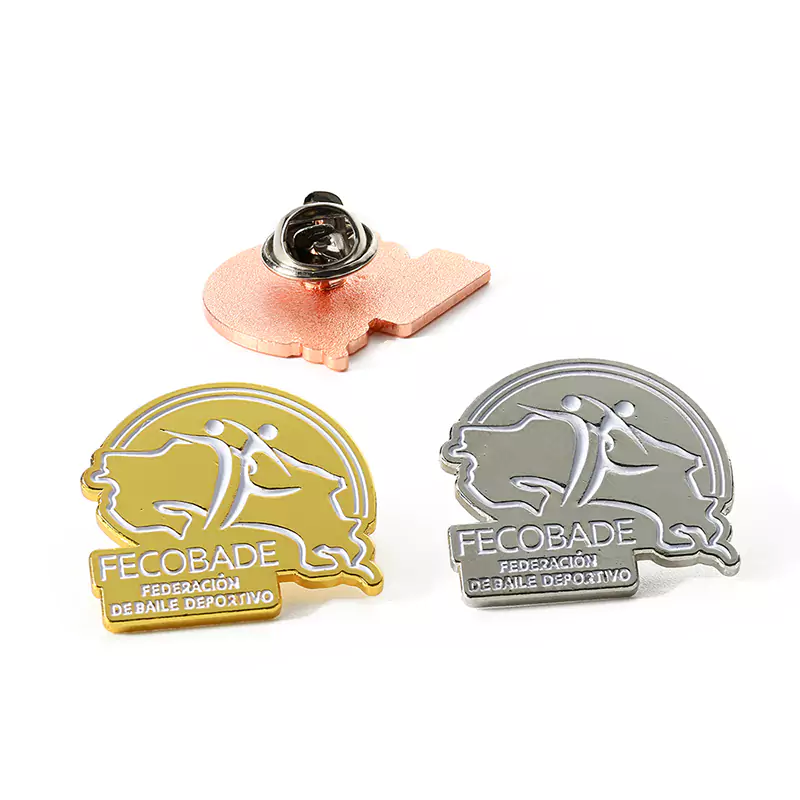As Steele puts it, "object-based research provides unique insights into the historical and aesthetic development of fashion." Utilizing object analysis methods, we can explore the unique insights behind objects, their inherent history and aesthetic significance. In this paper, the brooches will be analyzed in depth through three parts: description, deduction and speculation.
Brooch: A Journey from Warrior to Fashion
The item I have chosen is a brooch that looks like a rose with a pearl and two gemstones. The entire brooch is gold-plated, made of the finest materials and is superbly crafted. The rose petals are decorated with many fine dots and there are many straight engraved lines showing the appearance of leaves. A brooch is a piece of jewelry worn on clothing and is considered a decorative brooch, usually made of metal and inlaid with pearls, precious stones, enamel, and so on. It can be used purely for decorating or securing clothing such as robes, cloaks and scarves. These brooches incorporate a variety of customized fun and fashion elements and are commonly found in orchid, diamond ring, oval, fan and butterfly shapes.
Variety of Materials and Craftsmanship of Brooches
Brooches date back to the Bronze Age, and their variations in form can help archaeologists date historical artifacts. Contemporary women usually wear brooches, which can be worn on the shoulder, on a hat or in the hair. Since brooches are relatively large pieces of jewelry, their design is more spirited and their decoration more attractive. Brooches are mostly made of silver, while others are made of ivory, topaz, alabaster, glaze, enamel and coral. Depending on the specific process, the making process can be simple or complex. Setting is one of the main steps in the craft, such as diamonds and onyx. In addition, engraving and filigree are also common processes used to design brooches. Brooches are usually not too big, with the smallest being the size of a button.
Fashion and glamor: the decorative significance of brooches
Brooches were widely accepted as a fashion accessory by fashion-conscious teenagers of the time. At the same time, it was also one of the favorite jewelry items for women. A custom brooch pin that matches the color, shape and outfit not only brings a sense of fashion, but also shows the charm and beauty of women. Wearing a brooch is also an important way in most western countries. However, brooches were not introduced to China until the Ming Dynasty when maritime trade was opened to the outside world. It is said that Chiang Kai-shek, then President of the Republic of China, wore a brooch in the shape of a rosebud when he married his wife, Soong Mei-ling, in Shanghai in 1927. This brooch was really attractive at that time.
While brooches used to be popularly worn for weddings or marriage proposals, today they can be used for many other formal occasions. The idea of using the brooch as a tool of diplomacy does not appear in any State Department handbook or any text documenting U.S. foreign policy. Former Secretary of State Madeleine Albright, known for her famous collection of brooches, used them to send subtle messages to the heads of state she visited while serving as ambassador to the United Nations.
Fashion and glamor: the decorative significance of brooches
The origins of brooches can be traced back to ancient Europe. When the brooch was invented, it belonged only to male warriors. They used these pin-shaped objects to secure their battle robes to show the warrior's majesty and dignity. By Greek and Roman times, brooches became the exclusive jewelry of knights or kings. While brooches may have been encrusted with ornate jewelry, prior to this time, the real purpose of a brooch was to hold a cloak in place when the wind blew. Meanwhile, women used simple cords to tie their cloaks or capes.
It wasn't until the dawn of civilization pierced through the darkness of the Middle Ages that Italian women began to wear a wide variety of colorful custom brooches to dress themselves. However, when the nobility realized that ordinary rosebuds could not complement the magnificent gowns made of oriental silks, they began to use jewelry encrusted with precious stones and gold to complement the nobility of these magical fabrics. Since then, brooches have become an adornment that expresses femininity and beauty. The most important meaning of jewelry is to convey emotions, and the brooch expresses this euphemistic desire very well. It has a small surface that can be painted or enameled. Any kind of traditional artistic style can be reflected in this small place.
For example, the most famous honeymoon brooch in Europe is a combination of honeysuckle, honey and crescent moon in a delicate and sweet composition. It is also regarded as the language of brooches by master jewelers. In his first novel, Die Liebe der Erika Ewald (The Love of Erika Ewald), the Austrian author Stefan Zweig wrote: "For a woman, a brooch is not so much an ornament as a symbol, for it is the only ornament of all that does not touch a woman's skin. Even if you are a queen, you must humbly bow your head when wearing a brooch. When wearing a brooch, you experience a moment of vertigo because you can see yourself from within.
The Inner History and Aesthetic Significance of Brooches
There is a unique charm to brooches. No matter how complicated it is, a brooch worn on fabric does not give a sense of burden. It is not heavy like a necklace or binding like a ring. It simply threads lightly through your clothing. Its independence and significance is exactly the kind of emotional expression that modern women do best. It's not cold metal, it speaks, it laughs, it elevates the inner story to a higher plane, and like a star shining in a dark sky, it sparks inspiration out of repression.
Brooches with gemstones, enamel, or other jewelry have textures and properties beyond what you would expect from an ordinary brooch. Antique finishing styles or delicate 360-degree gilt designs will make you feel like you're not wearing an ordinary brooch, but a work of art. For both men and women, brooches can dazzle you with a variety of styles. The rosebud shape is a classic shape for brooches.
Summary: The unique charm and cultural value of brooches
Throughout this study, we have used the methodology provided by Jules Prown to explore the intrinsic historical and aesthetic significance of brooches. First, the intrinsic evidence of the brooch itself is documented through the description of its essential characteristics; then, the interaction between the brooch and society over the course of history is interpreted through progressive deduction; and finally, a new understanding of the brooch is developed through speculation and the formulation of hypotheses and questions.
With the passage of time, the brooch has evolved. No longer a simple pin that held clothing in place only for male warriors, it now reveals a deep cultural base in the person who wears it. At the same time, the brooch has also changed its original function, adding more artistic value and aesthetic significance. Nowadays, it is not only a kind of decoration, but also a piece of art. A good brooch design contains the designer's artistic concept and gives life to it, becoming a unique way of artistic expression.
You Dream It, We Make It.
Hesank will help you out! Curious to discover more about brooches? Dive deeper into our world of customizable designs and find inspiration on our Facebook page. Join our community today for exclusive offers, behind-the-scenes insights, and the latest updates!






